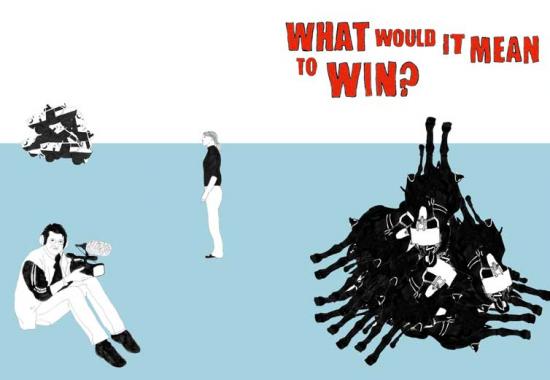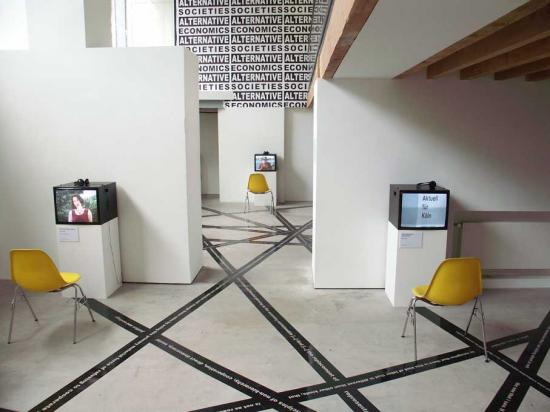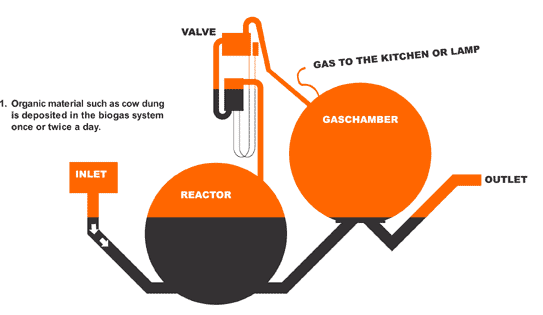



To read Part 1 of this article visit this link:
http://www.furtherfield.org/articles/trajectories-how-reconcile-careerist-mentality-our-impending-doom-part-14
To read Part 2 of this article visit this link: http://www.furtherfield.org/articles/trajectories-how-reconcile-careerist-mentality-our-impending-doom-part-24
To read Part 3 of this article visit this link: http://www.furtherfield.org/articles/trajectories-how-reconcile-careerist-mentality-our-impending-doom-part-34
Returning to Badhwar’s essay, it is important to note the impulsive and/or compulsive nature of the acts of altruism that she studied – “the spontaneity of their choice to help” (Badhwar 1993, p.96). She observes that:
“Those who acted spontaneously, then, acted with a sense that they had no alternative but to help, and that, under the circumstances, helping was nothing special… [Their actions were] a spontaneous manifestation of “deep-seated dispositions which form one’s central identity” or character.” (Badhwar 1993, p.97)
Of course, impulsion and / or compulsion are not the sorts of qualities which can be taught or learnt. As is suggested, you really have to believe in what you are doing in order to act instinctively – in a way which is not premeditated or over-deterministic. In this sense you cannot simply follow a ‘plan’ to be altruistic as this is in its essence self-defeating. It is, however, possible to develop one’s “character” or “identity”, so that we do begin to notice when things are wrong or unjust and we really do feel compelled to act to change them. This is done through periods of self-reflection but also, more importantly, by acquiring knowledge.

Oliver Ressler uses his research-based practice as a way of not only acquiring knowledge for himself, but of disseminating it to others – via video, installation and public realm contexts. His 2008 film What Would It Mean To Win? in collaboration with Zanny Begg focuses on the counter-globalisation protests at the G8 Summit in Heiligendamm in Germany in 2007. The documentary sections of which probe members of resistance movements to consider just what form society might take if they were to ‘win’ what they have been fighting for. His creation of a bank of knowledge about social alternatives is extended in Alternative Economics, Alternative Societies – a documentary, installation and billboard project which presents ideas and proposals for alternative economic and societal models, which all use the rejection of the system of capital as a starting point (Ressler 2007). The research from this project was published as a book in 2007.
Ressler’s book can be seen as a companion to that of art collective Superflex who in 2006 initiated and published Self-organisation / Counter-economic Strategies. As a “toolbox of ideas”, the book puts forward a series of proposals for self-organised models of social and economic systems that also aim to offer an alternative to capitalism (Bradley et al. 2006). Both books aim to spark debate about the negative effects of our current social order and (as Point 2. suggests) ‘to revivify the belief that ‘an alternative’ is possible’.

What is interesting is that the more we learn about the connections between capitalism and environmental catastrophe – the more self-reflection we undertake – the more ‘responsibility’ we inherit. In his famous essay exploring the moral differences between active and passive action Killing and Starving to Death, James Rachels illuminates this notion:
“There is a curious sense, then, in which moral reflection can transform decent people into indecent ones: for if a person thinks things through and realises that he is, morally speaking [in the wrong]… his continued indifference is more blameworthy than before.” (Rachels 2006, p.73)
And so the self-reflexive artist enters into a spiral. The more knowledge that they research and acquire – the more their conscience is likely to compel them to act. The question then becomes whether art is the most efficient way of effecting real change.
According to Artur Zmijewski, his recent work Democracies – a series of documentary clips depicting different protest movements from around the world – is not art. “Art”, according to Zmijewski, “is too weak to present political demand” (Prince 2009, p.6). Artists have in the past reached a similar conclusion – turning to existing political systems as a more direct means of effecting change. In 1980 Joseph Beuys was instrumental in setting up the Green Party in Germany, running as its candidate for the European Parliament, and, in 1988 Maria Thereza Alves co-founded the Green Party in Brazil. In a recent lecture Alves points out that it becomes the role of the artist to “judge in each situation whether art or politics provides a better solution” (Alves 2010).

As well as proposing theoretical solutions in book form, Superflex have also attempted to find practical solutions to real life problems in Africa. Although falling under the umbrella of their artistic practice, these projects seem more akin to the sort of thing you might expect to see being pioneered by a charity or a development agency. In 1996-7 they worked with engineers to develop the Supergas system, which is capable of turning compostable waste in the form of human / animal dung into “sufficient gas for the cooking and lighting needs of an African family”, thereby allowing them to “achieve self-sufficiency in energy” (Superflex 1997). The realisation of the Supergas system seems to epitomise the marriage between creative thinking and functionality which Araeen calls for by presenting the example of the desalination plant. What is interesting about this project, and indeed Beuys’ and Alves’ involvement in Green politics, is how it shifts our perception of the role of the artist when viewed as an important component part of a wider practice…

It has been suggested that the most successful campaigning bodies, such as Greenpeace, function “through multi-pronged channels of official, semi-official and illicit activity to negotiate specific ends” (Perry 2010, p.8). They operate under several different ‘hats’ – as a registered charity for raising funds (sometimes even stooping so low as to employ the cynical marketing strategies of the ‘charity-mugger’ on the street) and, at once, as a band of renegade activists aboard the Rainbow Warrior causing real disruption to cruel and exploitative practices and playing tactical media games. They demonstrate a “positive disengagement” (Fisher 2006) from the mainstream, coupled with a savvy co-option of the system, where it clearly presents itself as a more productive solution.
It is possible that the new model for a ‘reconciled artistic practice’ could take a similar form, where the artist (or preferably the collective of artists) balances a variety of activities across different fields. Described as “a group of freelance artist-designer-activists committed to social and economic change” (Myers 2007), Superflex do not ‘abandon’ the art world altogether and, in addition to the projects described above, they continue to work on commissions for its major institutions. For example, in 2009 they made a series of short films The Financial Crisis (Session I-V) for the art market’s number one annual trade fair – Frieze. Like the Lab of ii and following in a long lineage of institutional critique, Superflex appear to understand the benefits of being able to use the system by infiltrating it, criticising and beginning to change it from within.
In now seems evident that our success at adapting to this multi-pronged mode of operation, which straddles real political action, activism and art world insider jobs, depends on our flexibility in approaching different tasks – our ability to wear these different ‘hats’ with conviction and our adeptness at switching between roles. So here it becomes possible to identify the second of the characteristics of neoliberalism which we might aim to salvage. For it is “the very hallmarks of management in a post-Fordist, Control society” – our ‘flexibility’, ‘nomadism’ and ‘spontaneity'” (Fisher 2009, p.28) which we must now begin utilise, as well as our ability to cope with and adapt to change. Both very useful skills to have as the temperatures begin to rise and the food stocks begin to run low.

The final characteristic particular to the career-minded artist, which we must aim to reconfigure as central to our new roles in the twenty-first century, is our work-ethic, which results from our comparatively high levels of intrinsic motivation (Abbing 2002, p.82). The acceleration of work rates is something which has developed across the board under neoliberalism to the extent that we are now “bound” to our work in an “anxious embrace”…
“Managers, scientists, lobbyists, researchers, programmers, developers, consultants and engineers, literally never stop working. Even their sex lives serve to augment productivity.” (The Invisible Committee 2009, p.47)
However, it is the artist’s ability and willingness to work twenty-four-seven often in situations completely removed from wage-labour relations, that makes us ‘exceptional’ (Abbing 2002) and offers the potential, even, to act as a paradigm for a general approach to work in a world beyond capital. For it is this position of “radical autonomy” which presents the opportunity for “real education of our socialised senses and human potentials that releases development in all directions” (Ray 2009, p.546). We continue, over the course of our lives, to relentlessly acquire knowledge, self-reflect and develop, adapt, evolve and act – not for money, but because something inside us – something inherent in our ‘character’ – compels us to. If we could only succeed in “freeing” a small fraction of this exceptional motivation “from the self-destructive narcissist ego” (Araeen 2009, p.683) and releasing it in a more selfless and functional direction, it could still be a hugely positive force for change.
Following Aristotle’s classic assertion that moral excellence is found in a person’s rational capacity to choose the mean between extremes (Mautner 2005, p.43), the introduction to the Cambridge reader on Altruism, in which Badhwar’s essay is published, suggests that:
“The most challenging task of a moral theory is to strike a balance between the weight we give to our own interest and the weight we give to those of others. A theory that directs us to give too much to others is as deficient as one that directs us to give too little.” (Paul et al. 1993, p.ix)
And, so it seems that ‘a reconciled practice’ will also, to a certain extent, be about compromise. It will be about attempting to ‘strike a balance’ between the time we invest in each of the various facets of our activity – direct political action or more conventional art world activity – and about how we best use our judgement as to when to focus on one thing over another. If we can achieve this equilibrium in our ‘multi-pronged approach’ to practice, and indeed in our lives in general, then this is perhaps also where we will find our “private satisfaction” (Abbing 2002, p.82): our happiness.
In a recent interview Ranciere reminds us “that there are certain situations where only reality can be taken into account – there is no room for fiction” (Charlesworth 2010, p.75). What this suggests is that perhaps the balance between the ‘selfish’ and ‘selfless’ activity which artists undertake will only really begin to shift when we are directly confronted with the realities of climate change. As James Lovelock suggests it may well take until the point of real global disaster – such as an event on the scale of the Pine Island glacier breaking off into the ocean causing tsunamis and an immediate and permanent sea rise of two metres (Hickman 2010, p.12) – until we are, through absolute necessity, able to totally reconfigure our motivations. Perhaps only when we do come face-to-face with this “worst kind of encounter with reality” (Kingsnorth & Hine 2009, p.11) will we, as artists, be able to assume our fully functional role in society.
When Franny Armstrong, founder of the 10:10 Campaign, says “if you’re not fighting climate change or improving the world, then you’re wasting your life” (Armstrong 2009a, p.8), she is essentially reinforcing the ‘wager’ set out in our ‘plan of action’. However the future pans out, do you really want to look back on this pivotal moment in the history of our species and say ‘I did nothing’, ‘I did not make a stand’, or do you want to be able to say the opposite and to retain what should be our most commanding of all human motivations – our integrity.
——-
Abbing, H., 2002. Why Are Artists Poor?: The Exceptional Economy of the Arts, Amsterdam: Amsterdam University Press.
Alves, M.T., 2010. The Friday Event. The Glasgow School of Art. Available at: www.gsaevents.com/fridayevent/alves [Accessed April 25, 2010].
Araeen, R., 2009. Ecoaesthetics: A Manifesto for the Twenty-First Century. Third Text, 23(5), 679-84.
Araeen, R. & Appignanesi, R., 2009. Art: A Vision of the Future. Third Text, 23(5), 499-502.
Armstrong, F., 2009a. Franny Armstrong: If you’re not fighting climate change or improving the world, then you’re wasting your life. The Guardian, 8.
Armstrong, F., 2009b. What is 10:10? 10:10 Campaign website. Available at: www.1010uk.org/1010/what_is_1010/arms [Accessed April 10, 2010].
AVOID, 2010. Will the Copenhagen Accord avoid more than 2C of global warming? AVOID website. Available at: ensembles-eu.metoffice.com/avoid [Accessed May 3, 2010].
Badhwar, N.K., 1993. Altruism Versus Self-Interest: Sometimes a False Dichotomy. In Altruism. Cambridge: Cambridge University Press, pp. 90-117.
Bey, H., 1994. Immediatism, Oakland, California: AK Press.
Blackburn, S., 2009. Do we need a new morality for the 21st century? The Guardian Culture Podcast. Available at: www.guardian.co.uk/culture/audio/2009/nov/02/cambridge-festival-of-ideas.
Bradley, W. et al. eds., 2006. Self-organisation / Counter-economic Strategies, New York: Sternberg Press.
Brown, W., 2009. What will be the legacy of recession? The Guardian Culture Podcast. Available at: www.guardian.co.uk/culture/audio/2009/oct/26/culture-cambridge-festival-ideas.
Cameron, D., 2009. The Age of Austerity. The Conservative Party website. Available at: www.conservatives.com/News/Speeches/2009/04/The_age_of_austerity_speech_to_the_
2009_Spring_Forum.aspx [Accessed April 25, 2010].
Charlesworth, J.J., 2010. Jacques Rancière Interview. Art Review, (40), 72-5.
CIRCA, 2003. About the Army. Clandestine Insurgent Rebel Clown Army website. Available at: www.clownarmy.org/about/about.html [Accessed April 25, 2010].
Crisp, Q., 1996. The Naked Civil Servant, London: Flamingo.
Curtis, A., 2002. The Century of the Self, BBC 4.
Deleuze, G., 1990. Society of Control. L’Autre Journal, (1). Available at: www.nadir.org/nadir/archiv/netzkritik/societyofcontrol.html.
Fisher, M., 2009. Capitalist Realism: Is There No Alternative?, Ropley, Hampshire: 0 Books.
Fisher, M., 2006. Reflexive Impotence. k-punk blog. Available at: k-punk.abstractdynamics.org/archives/007656.html [Accessed April 25, 2010].
Fowkes, M. & Fowkes, R., 2009. Planetary Forecast: The Roots of Sustainability in the Radical Art of the 1970s. Third Text, 23(5), 669-674.
Guattari, F., 2006. Chaosmosis: An Ethico Aesthetic Paradigm. In Participation. London / Cambridge, Mass.: Whitechapel / MIT Press.
Guyer, P., 2004. Immanuel Kant. In E. Craig, ed. Routledge Encyclopedia of Philosophy. London: Routledge.
Hajek, A., 2008. Pascal’s Wager. The Stanford Encyclopedia of Philosophy. Available at: plato.stanford.edu/archives/fall2008/entries/pascal-wager [Accessed May 3, 2010].
Harvey, D., 2007. A Brief History of Neoliberalism, Oxford: Oxford University Press.
Harvie, D. et al. eds., 2005. Shut Them Down!, Leeds / New York: Dissent! / Autonomedia.
Hickman, L., 2010. James Lovelock: Fudging data is a sin against science. The Guardian, 10-12.
Hillcoat, J., 2009. The Road, Dimension Films.
IPCC, 2001. Special Report on Emissions Scenarios. GRID-Arendal website. Available at: www.grida.no/publications/other/ipcc%5Fsr/?src=/climate/ipcc/emission [Accessed May 3, 2010].
Jordan, J., 2010. On refusing to pretend to do politics in a museum. Art Monthly, (334), 35.
Kerr, A., 2010. Goldsmiths: But is it Art?, BBC 4.
Kingsnorth, P. & Hine, D., 2009. Uncivilisation: The Dark Mountain Manifesto. Available at: www.dark-mountain.net/about-2/the-manifesto.
Lab of ii, 2005. About Us. The Laboratory of Insurrectionary Imagination website. Available at: www.labofii.net/about [Accessed April 25, 2010].
Mamudi, S., 2008. Lehman folds with record $613 billion debt. MarketWatch website. Available at: www.marketwatch.com/story/lehman-folds-with-record-613-billion-debt?siteid=rss [Accessed April 25, 2010].
Mautner, T., 2005. Aristotle. In The Penguin Dictionary of Philosophy. London / New York: Penguin, pp. 40-4.
Mouffe, C., 2007. Artistic Activism and Agonistic Spaces. Art & Research, 1(2). Available at: www.artandresearch.org.uk/v1n2/mouffe.html [Accessed April 25, 2010].
Myers, J., 2007. Superflex. Frieze Magazine, (106). Available at: www.frieze.com/issue/review/superflex [Accessed May 9, 2010].
Paul, E.F., Miller, F.D. & Paul, J. eds., 1993. Altruism, Cambridge: Cambridge University Press.
Perry, C., 2010. Art v the Law. Art Monthly, (333), 5-8.
Priddle, A., 2009. School of Saatchi, BBC 2.
Prince, M., 2009. Art & Politics. Art Monthly, (330), 5-8.
Prince, M., 2010. Remakes. Art Monthly, (335), 9-12.
Rachels, J., 2006. Killing and Starving to Death. In The Legacy of Socrates: Essays in Moral Philosophy. New York: Columbia University Press, pp. 60-82.
Ranciere, J., 2007. Hatred of Democracy, London: Verso.
Ray, G., 2009. Antinomies of Autonomism: On Art, Instrumentality and Radical Struggle. Third Text, 23(5), 537-46.
Ressler, O., 2007. Alternative Economics, Alternative Societies. Oliver Ressler website. Available at: www.ressler.at/alternative_economics [Accessed April 25, 2010].
Sharp, C., 2010. Career Suicide. Art Review, (40), 52-4.
Strawson, P.F., 2008. Social Morality and Individual Ideal. In Freedom and Resentment and Other Essays. London / New York: Routledge, pp. 29-49.
Superflex, 1997. Supergas. Superflex website. Available at: superflex.net/tools/supergas [Accessed May 5, 2010].
Thatcher, J., 2009. Crunch Time. Art Monthly, (332), 5-8.
Thatcher, M., Margaret Thatcher Quotes. About.com website. Available at: womenshistory.about.com/od/quotes/a/m_thatcher.htm [Accessed May 2, 2010].
The Invisible Committee, 2009. The Coming Insurrection, Los Angeles / Cambridge, Mass.: Semiotext(e).
Triandis, H., 1995. Individualism and Collectivism, Boulder, Colorado: Westview Press.
Vonnegut, K., 2003. Knowing What’s Nice. In These Times. Available at: www.inthesetimes.com/article/knowing_whats_nice [Accessed April 25, 2010].
Walker, J., 2002. Left Shift: Radical Art in 1970s Britain, London / New York: I.B. Tauris.
Williams, E.C., 2009. Putting the punk back in salvage (where it was not to begin with). Socialism and/or Barbarism blog. Available at: socialismandorbarbarism.blogspot.com/2009/08/putting-punk-back-in-salvage-where-it.html [Accessed May 4, 2010].
Zizek, S., 2009a. First As Tragedy, Then As Farce, London: Verso.
Zizek, S., 2009b. In Defense of Lost Causes, London: Verso.